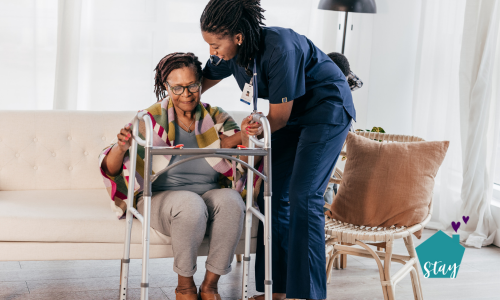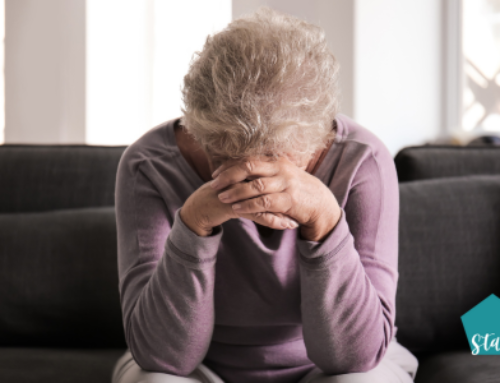 Living at home alone can eventually become unsafe for individuals living with dementia, disease, or a disability. Fortunately, live-in care offers families the peace of mind that their loved one has assistance and all of their care needs are met around the clock. It’s important to note that it can be difficult to know exactly when extra care and support are needed, but there are common warning signs to look out for that can indicate the need for live-in care. Below, we discuss these warning signs and the many benefits of utilizing this care option for your loved one.
Living at home alone can eventually become unsafe for individuals living with dementia, disease, or a disability. Fortunately, live-in care offers families the peace of mind that their loved one has assistance and all of their care needs are met around the clock. It’s important to note that it can be difficult to know exactly when extra care and support are needed, but there are common warning signs to look out for that can indicate the need for live-in care. Below, we discuss these warning signs and the many benefits of utilizing this care option for your loved one.
Indicators that Your Loved One Needs Live-In Care
Wandering
Though wandering is considered most common in the moderate stages of Alzheimer’s disease, it can occur at any time. A person affected by this disease can become temporarily disoriented and confused, leading to their search for the familiar and the tendency to wander.
Trips and Falls
Aging and illness both increase mobility issues and the risk of falling accidents. These falls can cause serious–potentially fatal–injuries, while also diminishing their self-confidence. On top of this, minor falls and accidents often go unreported to family members if no injury occurs, making it difficult to spot when this trend starts.
Sleep problems
Issues with sleep are common among elders because of their changing sleep habits. Some of the most common shifts in their sleep to look out for include:
- Waking up frequently at night or early in the morning
- Difficulty falling asleep
- Only sleeping for a few hours
- Getting lower-quality sleep
Social isolation
While social isolation isn’t a tell-tale sign that live-in care is needed, your loved one’s mental and physical health are still at risk when they lack social contact. A live-in care assistant can provide socialization and support for the client by establishing rapport.
Inability to carry out daily tasks
If your loved one is consistently struggling with everyday tasks such as bathing, dressing, grooming, toileting, etc., a live-in caregiver could provide them with assistance when necessary and reminders to look after themselves.
Accidents
Forgetfulness and confusion often lead to preventable accidents around your loved one’s living area. Things such as leaving water running, forgetting to close/lock doors, and leaving stoves/ovens on are just a few minor mistakes that can have much greater repercussions.
Benefits of Live-In Care
Personal care
A live-in home care assistant will be able to focus solely on the aging adult and meet all of their medical and physical needs. Families will be able to discuss their loved one’s condition with a trained professional. Together, families will decide on the best care plan.
Peace of mind
The cases of elder abuse at nursing homes are on the rise. Sadly, some cases of neglect or abuse may go unnoticed because of long gaps between visits. With an in-home, around-the-clock care assistant, families have the peace of mind of monitoring the care their loved one is receiving.
Keeping family unit intact
Most adult children do not want their aging parents to feel abandoned in their twilight years. Caring for their loved one at home allows them to keep their family together. Grandchildren will appreciate being able to see their grandparents regularly and seniors will continue to feel as though they are a valued member of the family.
Cost-effective
Live-in care can be more affordable than hourly care, especially when 24/7 support is needed. Other options like nursing homes charge up to four figures a month, on top of other miscellaneous costs that can increase the bottom line, making them unaffordable for many.
For all of your live-in home care needs in South and Central Jersey, call and talk to us at Home to Stay Home Care Solutions at (856) 321-1500.












